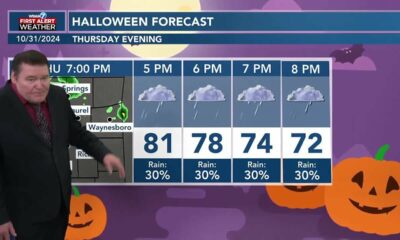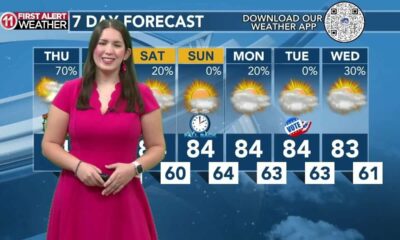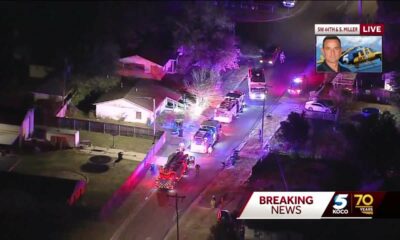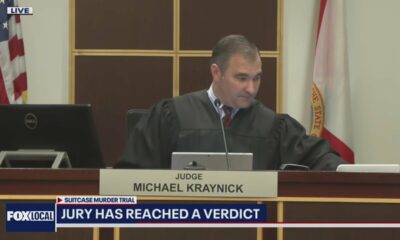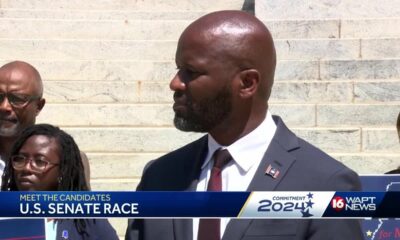Mississippi Today
Ravin Lovett, healing quilter and art therapist
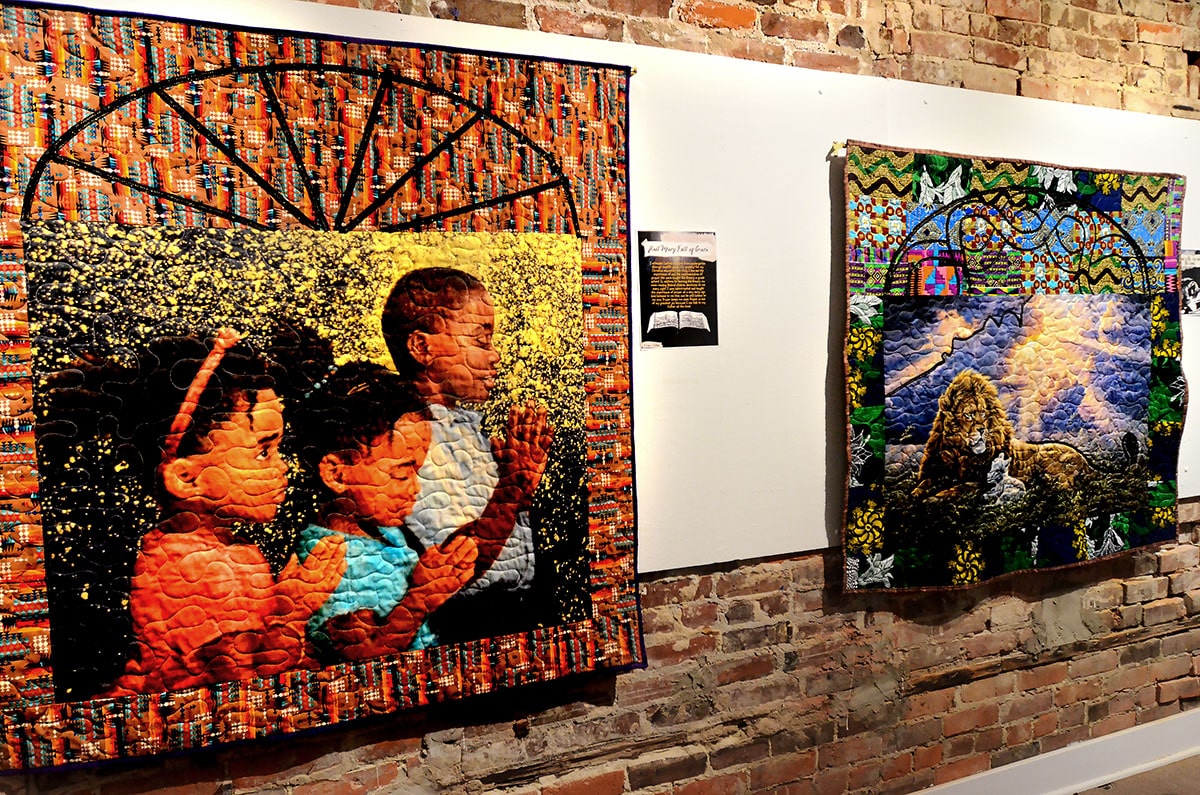
Ravin Lovett, an artist and art therapist, says she became fascinated with quilting at a young age, watching her “Big Mama” make magic from scraps of cloth. It was her grandmother that taught her to quilt. And it was this loving grace that eventually sent her on a journey of self-realization and self-healing.
“I was fascinated by quilting,” said Lovett. “Watching my grandmother… the technique, the patience and the beautiful results of a process created from these simple pieces of cloth was magical to me and over time, brought me a special kind of peace. It’s been a journey of peace and self-discovery.”
Lovett, 42 of Jackson, has created her quilts on a professional level since 2000. It was during harder times in her life that she went back to an unfinished quilt that she and her grandmother worked on in the mid-90s.
This discovery awakened the artist in her.
Lovett went back to school to further her education. She has degrees in art education and English, and a Master of Art in Biblical and Theological Studies. She credits her Big Mama, God and quilting for the healing she wants to share with others.
“I want to share my knowledge, my skills, with others. I want to teach them to quilt and help them find peace, too. Being an art therapist, a quilter, I can do that.”
Lovett’s 18 pieces are on display in an exhibit titled, “Freedom,” at the Smith Robertson Museum in Jackson until the end of November.
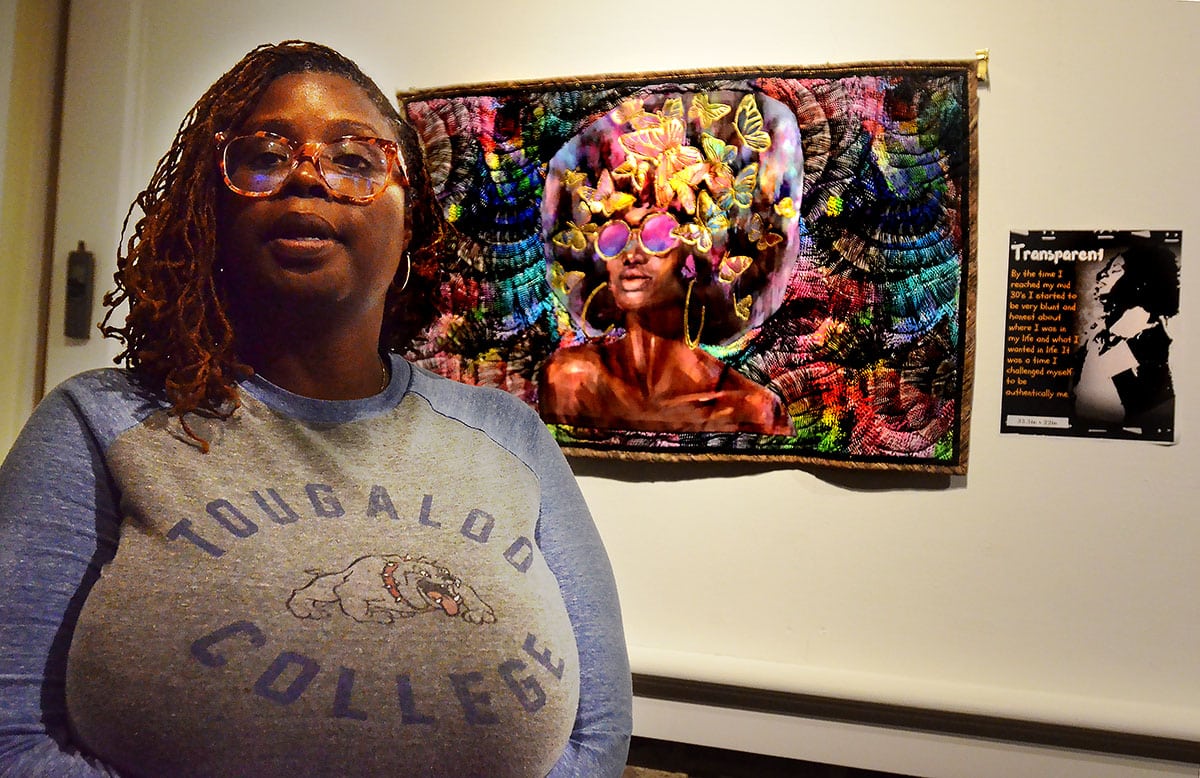
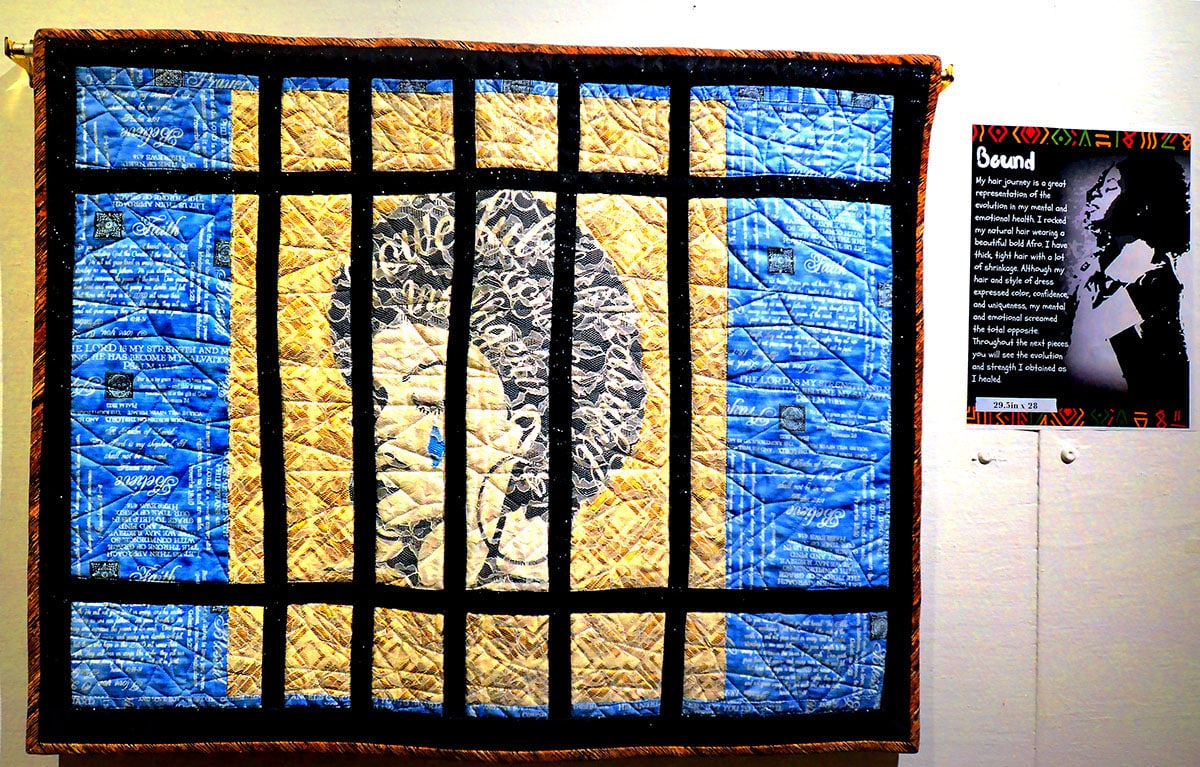
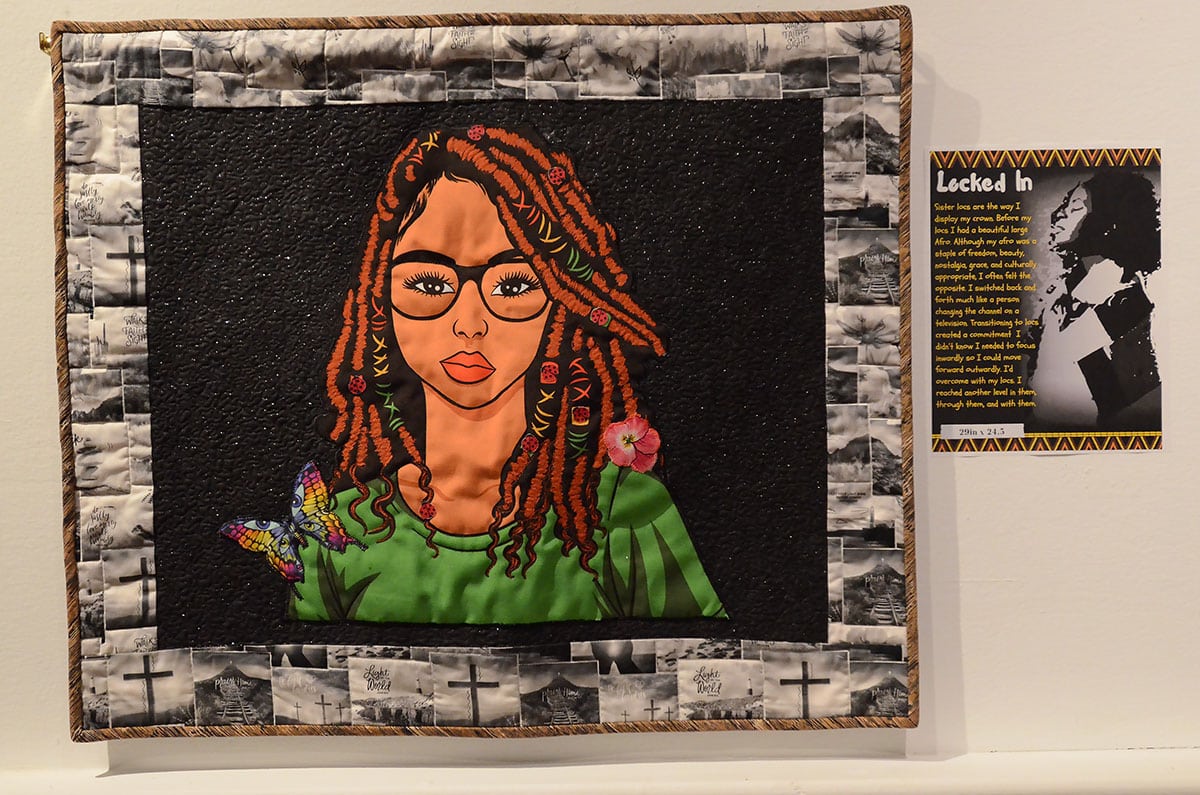
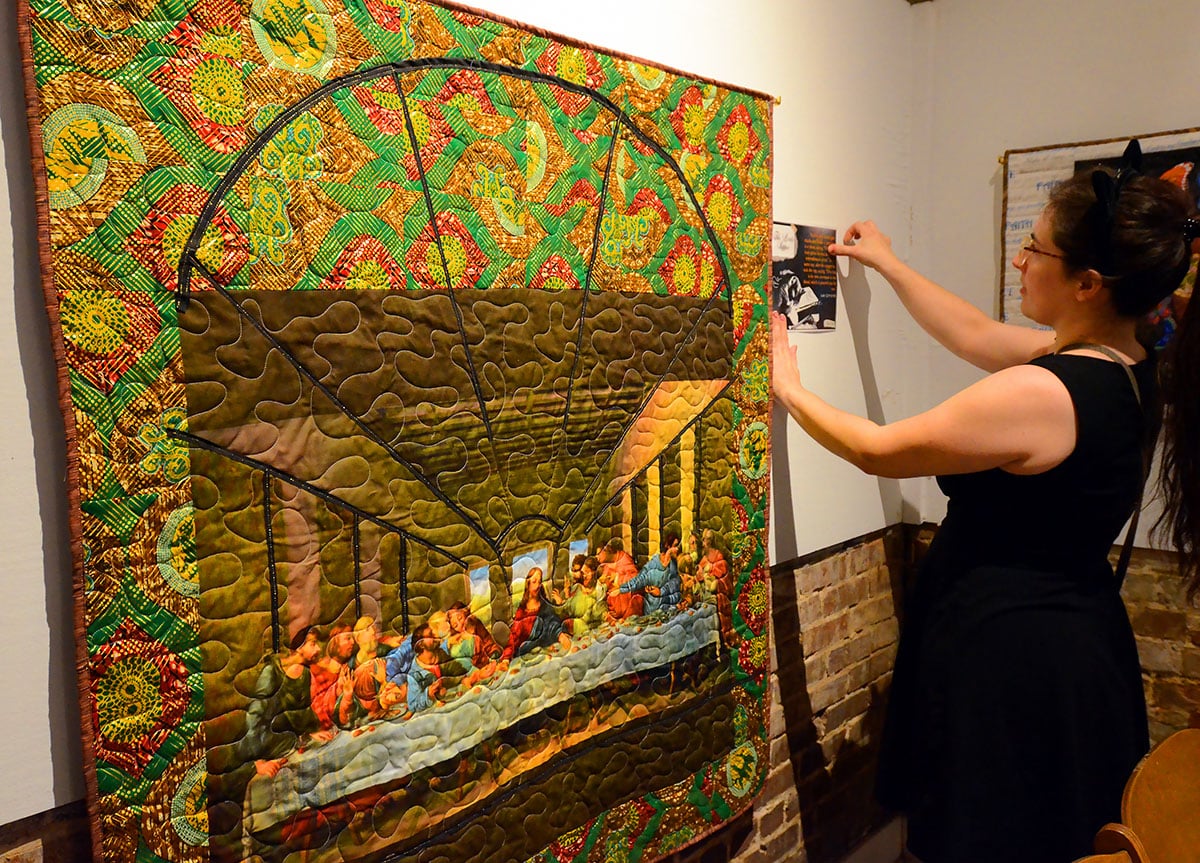
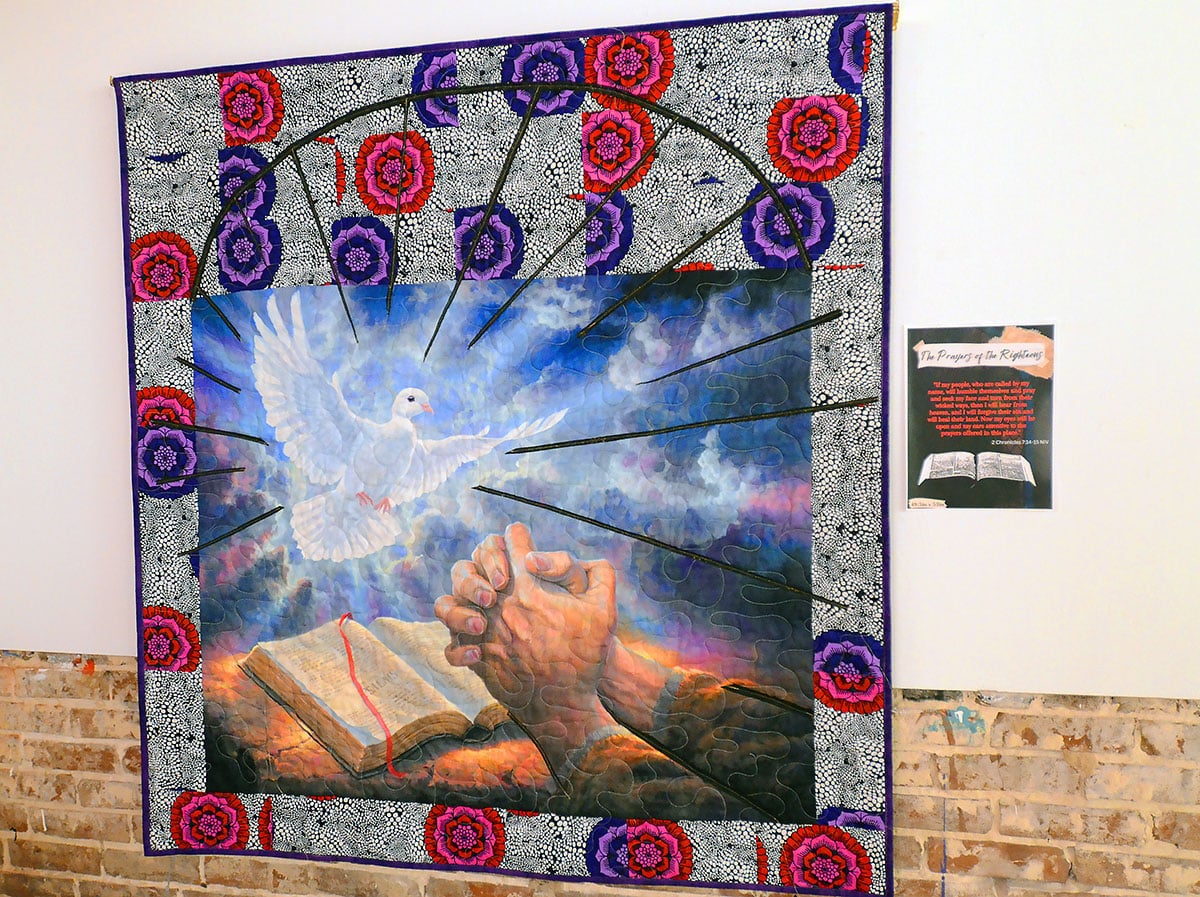
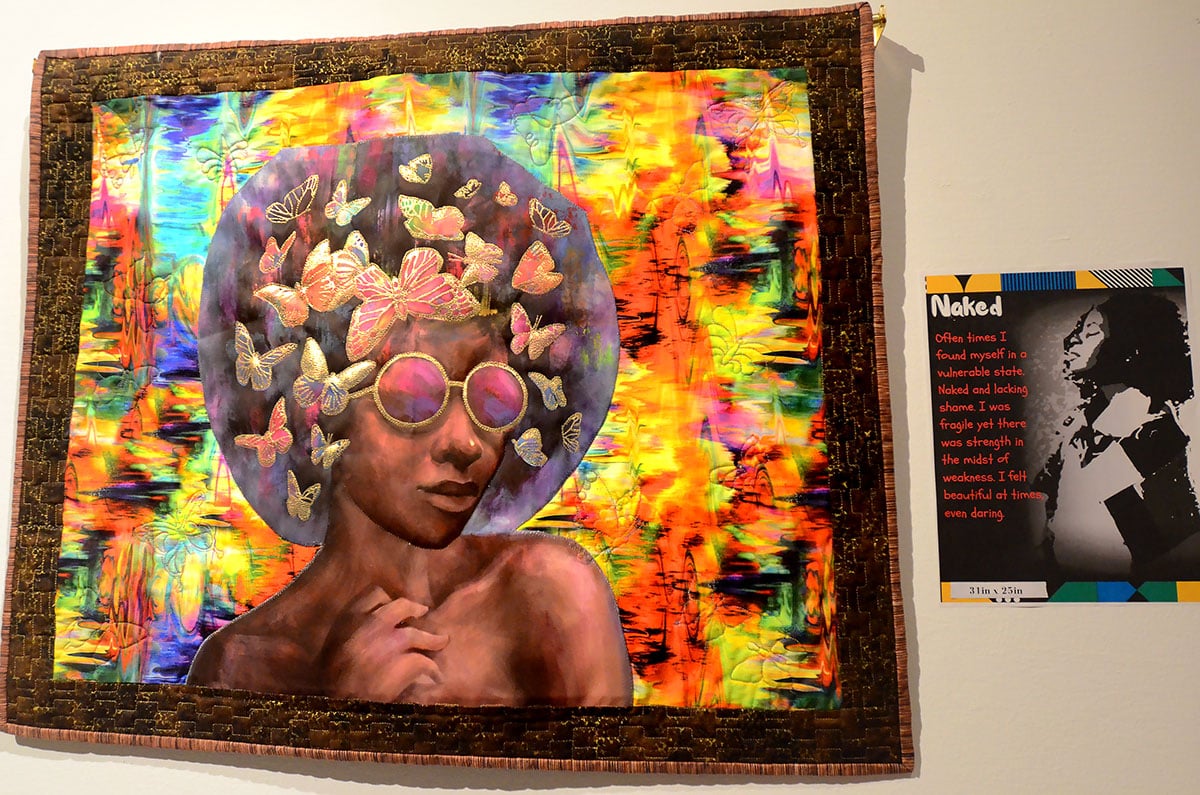
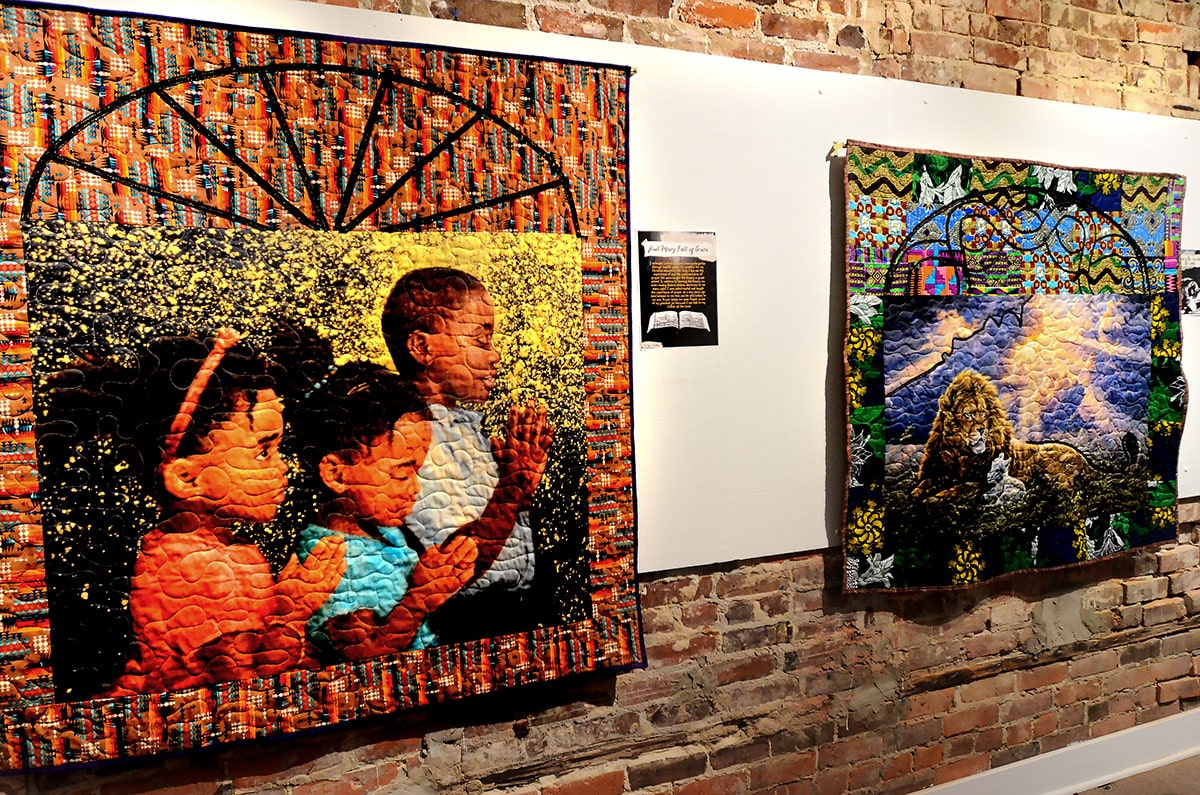
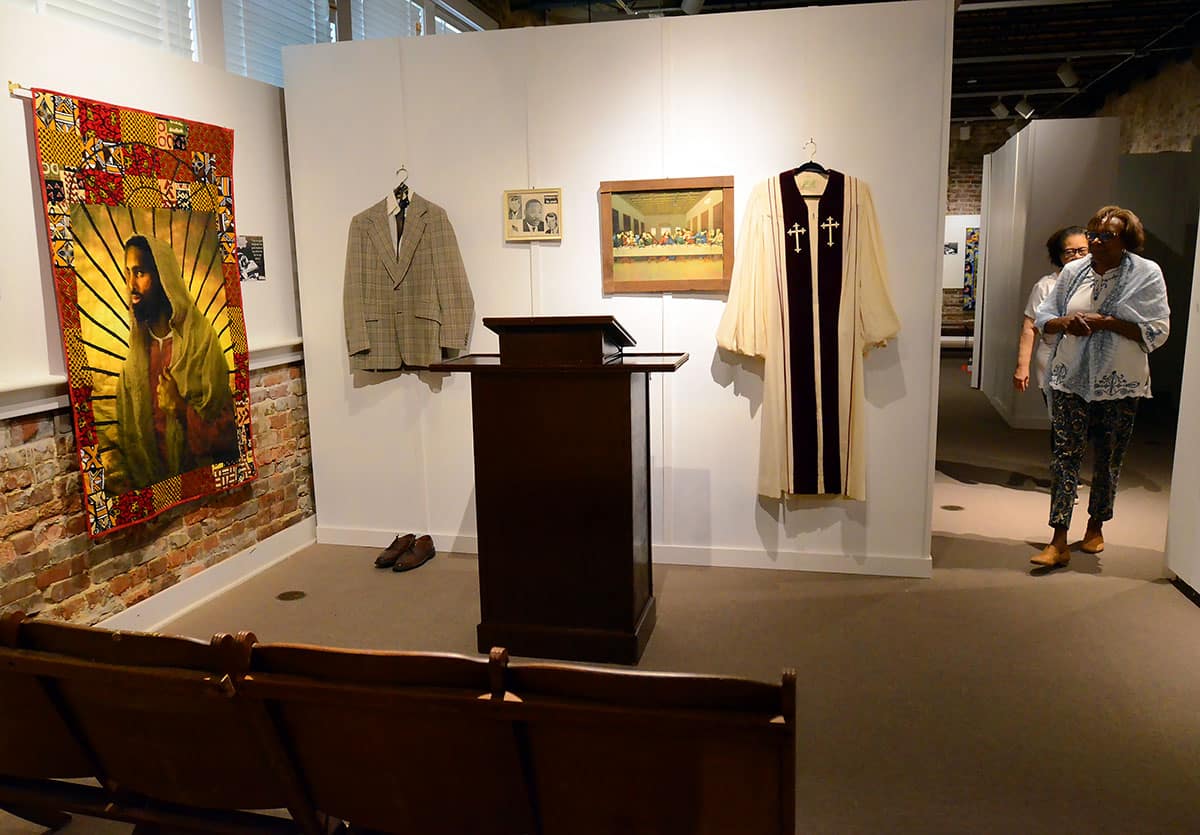
This article first appeared on Mississippi Today and is republished here under a Creative Commons license.
Mississippi Today
PHOTOS: Bridging language barriers through interpreter training


Ridgeland — In Mississippi, where an estimated 35,800 residents face language barriers in health care, a recent event trained professionals to communicate more effectively with limited-English-speaking patients in an effort to bridge gaps in care.
The program, which began on Oct. 2, was organized by the Mississippi Department of Health’s Office of Health Disparity Elimination and the Bureau of Language Access. It served as a step toward improving access to essential services for Limited English Proficient (LEP) individuals.
“Interpreters are fundamental in ensuring that every individual can fully understand and access the services they need,” said Selma Alford, director of the Bureau of Language Access. “The training is rigorous and essential; it focuses on ethics, cultural competency, and the ongoing development of interpreters’ skills to meet diverse community needs.”
The training program covered a variety of topics essential for effective interpreting, including medical terminology, ethics, and cultural competency, equipping interpreters with the skills necessary for their roles. Each day of training featured interactive sessions, role-playing exercises, and discussions of real-world scenarios. Participants also engaged in exercises focused on building trust with clients and addressing the nuances of communication in health care settings.
Attendees included medical interpreters, court interpreters, teachers and community health workers, among others.
Gabrielle Miller, a housing case manager with the Gulf Coast Center for Nonviolence, attended to enhance her capacity to serve the Spanish-speaking population.
“I studied social work and Spanish in undergrad, and I’ve lived in Spanish-speaking countries. Now I’m back here working in the Gulf Coast … There aren’t that many people working in social services who can speak Spanish and interpret for those in the community. So I think it’s really important to come get my certification so that I can better serve the community that I live in,” Miller said. “… Some of my clients are solely Spanish-speaking, so advocating for them within my role is crucial.”
According to data from the Migration Policy Institute, approximately 1.2% of Mississippians are considered Limited English Proficient (LEP), meaning they speak English less than “very well.” The top five languages spoken by these individuals in Mississippi are Spanish, Vietnamese, Arabic, Chinese, and Gujarati. While about 96% of people in the state speak only English, 3.8% speak a language other than English.” This data underscores the critical need for trained interpreters to facilitate access to essential services.
The training also emphasized the risks of using children or family members as interpreters, which can lead to miscommunication.
“Misunderstandings can have life-threatening consequences, especially in medical settings,” Alford said.
Alford and Miller reiterated the need for credentialing and ongoing education to ensure interpreters can effectively support their communities and provide equitable access to critical services.
Alford urged community members to recognize the importance of professional interpreters as the need for effective communication in health care and social services continues to grow.
“Every voice matters. We encourage anyone interested in making a difference to pursue certification and help us build a more inclusive Mississippi,” she said.
Participants in the training received certificates of completion, signifying their readiness to serve as professional interpreters.











This article first appeared on Mississippi Today and is republished here under a Creative Commons license.
Mississippi Today
On this day in 1950


Oct. 31, 1950

Earl Lloyd became the first of three Black players (Chuck Cooper and Nat Clifton were the other two) in the National Basketball Association, paving the way for other African Americans who would follow.
A native of Alexandria, Virginia, the 6-foot-6 phenom became a defensive star at Parker-Grey High School, nicknamed “Moon Fixer.” He received a scholarship from West Virginia State, whom he led to two tournament championships. He became an All-American, and in 1947-48, his Yellow Jackets were the only undefeated team in the nation.
Nicknamed “The Big Cat,” he played his first game on Halloween. “The game was totally, unequivocally uneventful except for the date — Oct. 31,” he recalled later. “Maybe they thought I was a goblin or something.”
The Korean War interrupted his career before he returned to the hardwood, first with the Harlem Globetrotters and then back with the NBA. In 1955, he helped the Syracuse Nationals (now the Philadelphia 76ers) defeat the Fort Wayne Pistons for the NBA Championship.
He and Jim Tucker were the first African Americans to play on an NBA championship team. As a player, he endured prejudice, both in the arena and out, one Indiana fan spitting on him. In 1968, he became the NBA’s first Black assistant coach with the Detroit Pistons and became head coach in the 1971-72 season. He later worked for the public schools in Detroit, running programs that taught job skills to underprivileged children.
In 2003, the Basketball Hall of Fame inducted him, recognizing his contributions to the sport. “It’s easy to be successful when you’re surrounded by the greatest,” he said.
Four years later, his hometown of Alexandria named its newly constructed basketball court in his honor. The year he died, 2015, he became one of eight Virginians that the Library of Virginia named as the “Strong Men & Women in Virginia History.”
The NBA honored Lloyd for his work as a pioneer, but he remained humble. “I don’t think my situation was anything like Jackie Robinson’s,” he said. “I remember in Fort Wayne, Indiana, we stayed at a hotel where they let me sleep, but they wouldn’t let me eat. … Did it make me bitter? No. If you let yourself become bitter, it will eat away at you inside. If adversity doesn’t kill you, it makes you a better person.”
This article first appeared on Mississippi Today and is republished here under a Creative Commons license.
Mississippi Today
Mississippi Election 2024: What will be on Tuesday’s ballot?

Mississippians will go to the polls on Tuesday, Nov. 5, to elect federal and state judicial posts and some local offices, such as for election commissioners and school board members.
Polls will be open from 7 a.m. to 7 p.m. on Tuesday. To find your polling place, use the secretary of state’s locator, or call your local county circuit clerk.
READ MORE: View the Mississippi sample ballot.
The following is a list of the candidates for federal and judicial posts with brief bios:
President:
- Kamala Harris, current vice president and Democratic nominee for president. Her running mate is Tim Walz.
- Donald Trump, former president and current Republican nominee. His running mate is J.D. Vance.
- Robert Kennedy Jr. remains on the ballot in Mississippi even though he has endorsed Trump. His running mate is Nicole Shanahan.
- Jill Stein is the Green Party candidate. Her running mate is Rudolph Ware.
- Five other candidates will be on the Mississippi ballot for president. For a complete list of presidential candidates, see the sample ballot.
U.S. Senate
- Ty Pinkins is the Democratic nominee. He is a Rolling Fork native and attorney, representing, among other clients, those alleging unfair working conditions. He served 21 years in the U.S. Army, including combat stints, other overseas deployment and posts in the White House,
- Roger Wicker is the Republican incumbent senator. He resides in Tupelo and has served in the U.S. Senate since late 2007 after first being appointed to fill a vacancy by then-Gov. Haley Barbour. He was elected to the post in 2008. He previously served in the U.S. House and as a state senator. He is an attorney and served in the United States Air Force.
House District 1
- Dianne Black is the Democratic nominee. She is a small business owner in Olive Branch in DeSoto County.
- Trent Kelly is the Republican incumbent. He was elected to the post in a special election in 2015. He previously served as a district attorney and before then as a prosecuting attorney for the city of Tupelo. He is a major general in the Mississippi Army National Guard.
House District 2
- Bennie Thompson is the Democratic incumbent. He was first elected to the post in 1993. Before then, he served as a Hinds County supervisor and as alderman and then as mayor of Bolton.
- Ronald Eller is the Republican nominee. He grew up in West Virginia and moved to central Mississippi after retiring from the military. He is a physician assistant and business owner.
House District 3
- Michael Guest is the Republican incumbent and is unopposed.
House District 4
- Mike Ezell is the Republican incumbent first being elected in 2022. He previously served as Jackson County sheriff.
- Craig Raybon is the Democratic nominee. Raybon is from Gulfport and began a nonprofit “focused on helping out the community as a whole.”
Central District Supreme Court
- Jenifer Branning currently serves as a member of the state Senate from Neshoba County.
- Byron Carter is a Hinds County attorney and previously served as a law clerk for Supreme Court Justice Armis Hawkins.
- James Kitchens is the incumbent. He has served on the state’s highest court since 2008.
- Ceola James previously served on the Court of Appeals.
- Abby Gale Robinson is a Jackson attorney. She previously was a commercial builder.
Southern District Supreme Court
- Dawn Beam is the incumbent, having been first appointed in 2016 by then-Gov. Phil Bryant and later winning election to the post. She is a former chancellor for the Hattiesburg area.
- David Sullivan is an attorney in Harrison County. His father, Michael, previously served on the state Supreme Court.
Northern District Supreme Court seats
- Robert Chamberlin of DeSoto County is unopposed.
- James Maxwell of Lafayette County is unopposed.
Court of Appeals 5th District seat
- Ian Baker is an assistant district attorney in Harrison County.
- Jennifer Schloegel is a Chancery Court judge for Harrison, Hancock and Stone counties.
- Amy St. Pe is a Municipal Court judge in Gautier.
Court of Appeals District 2
- Incumbent Latrice Westbrooks is unopposed.
Court of Appeals District 3
- Incumbent Jack Wilson is unopposed.
This article first appeared on Mississippi Today and is republished here under a Creative Commons license.
-
News from the South - Florida News Feed6 days ago
Sarah Boone verdict: Jury makes decision in 60 minutes in Florida suitcase murder trial
-
Mississippi News Video7 days ago
Investigation underway in Eupora after disturbing video surfaces
-
Kaiser Health News2 days ago
Vance Wrongly Blames Rural Hospital Closures on Immigrants in the Country Illegally
-
Mississippi News Video6 days ago
Ty Pinkins is a candidate for U.S. Senate
-
Our Mississippi Home7 days ago
Clarksdale Voted Most Popular Mississippi City to Celebrate Halloween, Survey of Families Reveals.
-
Mississippi News7 days ago
Video released of a man allegedly exposing himself in Eupora
-
SuperTalk FM3 days ago
Tupelo teen Leigh Occhi declared dead after going missing 32 years ago
-
News from the South - Georgia News Feed2 days ago
Co-defendant takes plea deal in YSL RICO trial | FOX 5 News




